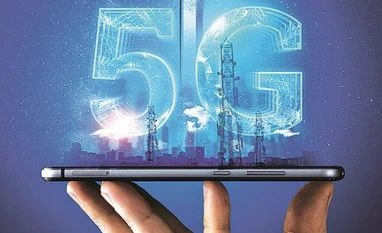The companies issued separate statements on Monday night, two days before their planned January 5 launch, and one day after rebuffing a request for delay from US transportation officials. The action came after a flurry of calls directed at the industry and the White House from aviation groups seeking a delay, and as airlines were threatening legal action.
The US Federal Aviation Administration had been planning to issue hundreds of notices with specific restrictions for airport runways, heliports and other flight routes, which it said could cause significant disruptions to the aviation system.
The issue involves a new band of faster 5G wireless service that is located near frequencies used by aircraft equipment to compute altitude. Aviation groups and the FAA fear it could compromise safety, especially in low visibility conditions. The wireless companies and the Federal Communications Commission, which approved the service, have said there isn’t a risk.
“It’s clear that this irresponsible rollout of 5G wasn’t ready for takeoff,” Joe DePete, president of the Air Line Pilots Association. “Now the real work begins.”
The agreements lift the prospect of litigation that would seek to force the FCC to halt the wireless providers’ airwaves use, according to an airline official who asked not to be identified.
Litigation could still go forward if the two-week pause doesn’t result in agreements on methods to protect planes at airports, the official added.
The wireless providers committed to not deploy towers near certain airports for six months if the aviation industry agrees not to escalate its campaign against the new service. The offer is modelled after exclusion zones at airports in France, where 5G service is working on similar frequencies and US airliners have landed.
To read the full story, Subscribe Now at just Rs 249 a month
Already a subscriber? Log in
Subscribe To BS Premium
₹249
Renews automatically
₹1699₹1999
Opt for auto renewal and save Rs. 300 Renews automatically
₹1999
What you get on BS Premium?
-
Unlock 30+ premium stories daily hand-picked by our editors, across devices on browser and app.
-
Pick your 5 favourite companies, get a daily email with all news updates on them.
Full access to our intuitive epaper - clip, save, share articles from any device; newspaper archives from 2006.
Preferential invites to Business Standard events.
Curated newsletters on markets, personal finance, policy & politics, start-ups, technology, and more.
Need More Information - write to us at assist@bsmail.in
)